Beers brewed with malted barley or wheat contain gluten. That means someone with Celiac disease — an affliction in which a person cannot tolerate gluten (a protein composite found in foods processed from wheat and related grain sources, including beer) — normally couldn’t enjoy a craft beer without innovators like Ghostfish Brewing Co. As Seattle’s first gluten free brewery and largest producer of dedicated gluten free beer in America, Ghostfish Brewing has racked up a zillion awards since opening in 2015, bringing gluten-intolerant customers back into the beer fold. Of course that niche wasn’t the initial idea.
“Most people aren’t aware that we didn’t start off with the intention to be a dedicated gluten free brewery,” said Brian Thiel, cofounder of Ghostfish Brewing. “More than several months into the brewery planning stage, we pivoted and changed the trajectory of the project based on a suggestion I made after realizing how difficult it was for loved ones in my life to enjoy a good gluten free beer…
“A lot has changed over the past seven years. Several years back, we transitioned from a casual/boutique brewery and stepped into our vision as a full-fledged production/packaging brewery. Guided by an experienced production team and aided by several timely expansion projects, we’re on course to cruise past 7,000 bbls this year. Built on the variety of seven year-round beers and a host of seasonal and limited brews, we presently distribute to nearly 20 states along with a growing export business to Canada and the United Kingdom.”
To make delicious gluten-free brews like Kick Step IPA and Meteor Shower Blonde Ale, Ghostfish Brewing utilizes a lot of the standard variety of equipment in both the brewhouse and packaging hall from fermenters to can fillers. What’s really key is that no gluten-containing ingredients are permitted into Ghostfish Brewing’s production facility.
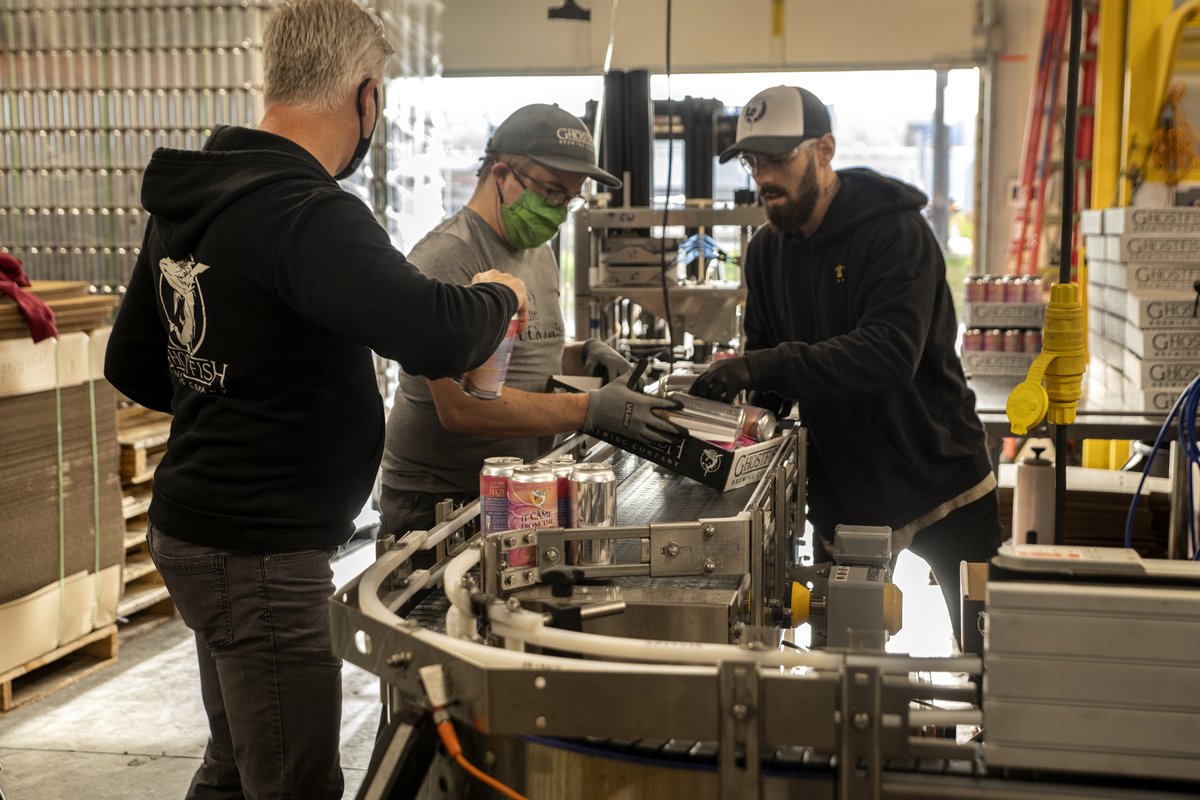
“Leading with a quality mindset is one of the most important aspects of our operation,” explained Thiel. “Our standard of quality has always been the best beer around us. From the beginning, we’ve strived to make beer for every beer drinker to enjoy, gluten free or not. Early on we felt strongly that to change people’s perceptions of gluten free beer, we wouldn’t be able to settle on being the #2 or #3 gluten free beer. Otherwise, why would they even give us a try?”
That quality control process has come with a growing focus on the equipment side. For example, Ghostfish Brewing uses a Sullair SRL 16.5 oil-free scroll compressor to help run its canning processes — affixing can tops, blowing water off the top of the cans and applying plastic carriers. Additionally, compressed air is used in the keg washing process. Why is oil-free important?
While oil-lubricated compressors have historically been used in breweries, using that same air for aeration or purging can have some serious effects on the beer. When compressed air is used in direct contact with mash, wort, beer, vessels or piping, trace amounts of oil can adversely affect the beer quality. In these sensitive types of air operations, an oil-less compressor is especially beneficial for applications in which the air comes in direct contact with the ingredients. Even for applications where there is not direct contact between the ingredients and the air, like Ghostfish’s packaging line, it can be beneficial in keeping the final product clean enough to put your mouth on.
“Compressed air is not one of the ingredients that goes into making craft beer,” said Amy Offord, area sales manager of Southeast US at Sullair. “but it is used in the manufacturing process for such things that are pushing fluids through piping or tanks, energy for pneumatic transportation, aeration of raw ingredients, valve modulation and purge gas to displace solutions during keg or can sterilization processes. It also plays a vital role in pneumatic operations of portable canning equipment. The bottom line is compressed air most likely will come in contact with the final product, so why take the risk of possible contamination?
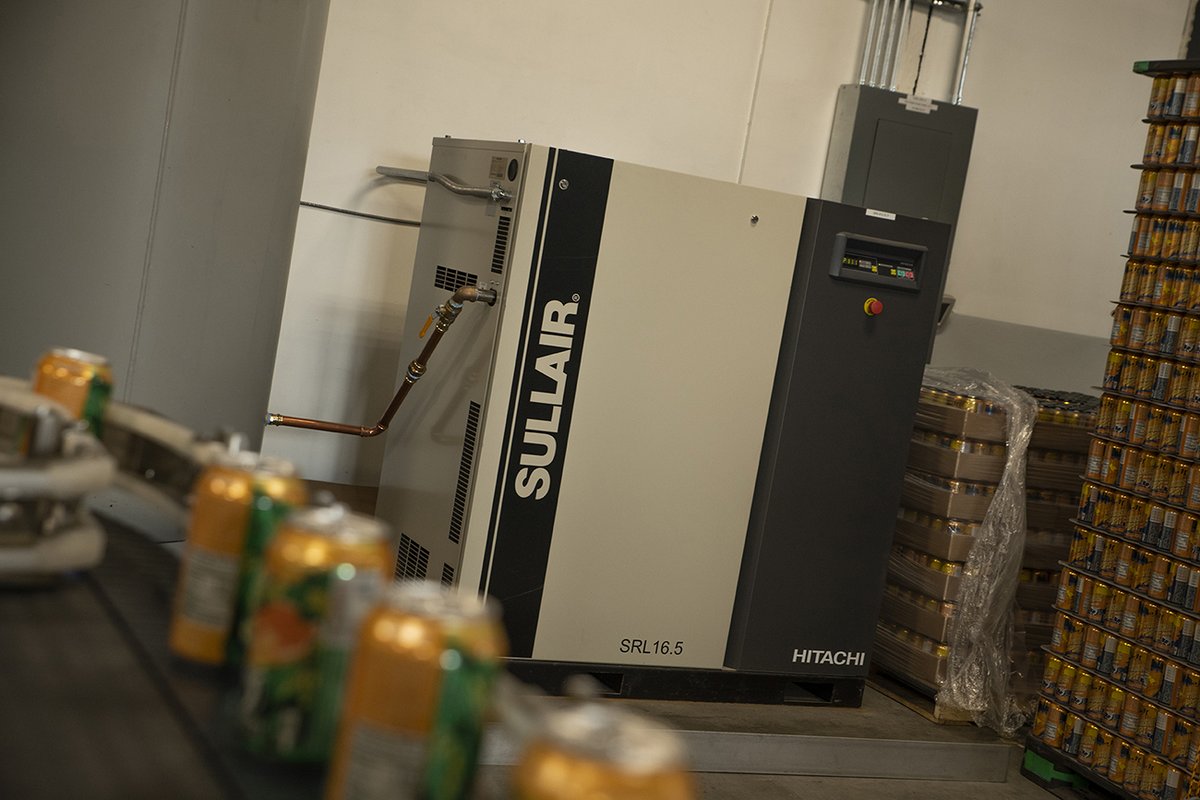
“For micro-breweries who produce less than 15,000 bbls of beer annually, their free air delivery [FAD] requirement is typically less than 80 scfm at 120 psig, making our SRL Series scroll compressors a perfect fit. The actual size of the compressor can vary and is totally dependent on how much air is needed for their specific brewing process. Most micro-breweries that I have come across require a smaller sized compressor than Ghostfish brewery and require — 25-30 scfm at 105 psig of compressed air. Our 10 hp SRL Series unit that can deliver up to 30.2 cfm at 122 psig is perfectly sized for this smaller need.”
Compressor air quality is broken down into quality classes with three major contaminant types: solids, humidity and liquid water and oil. Solid particulates (like dust or pipe scale) are removed by filters. Humidity and liquid water are removed by compressed air dryers, and oil (liquid and vapor) is removed by coalescing oil removal filters and activated carbon (charcoal) oil vapor adsorbing filters.
There are also many oil-free air compressors don’t use any oil in the first place. An air compressor might have a completely dry crankcase to achieve its 100 percent oil-less specification. Some oil-free compressors still use oil. Sullair is owned by Hitachi and Sullair oil-free compressors use the “Hitachi Patented Closed-Cycle Oil Mist Removal System.” Here’s a summary:
A patented process exists to eliminate the risk of air compressor sump oil mist being reintrained by the compressor intake. This patented process creates a closed-loop gear case oil mist removal system that recycles the oil to the gear case. One to three cfm of compressed air is regulated through a venturi. The venturi pulls a vacuum on the gearcase and pulls the oil mist into a coalescing filter. The oil is removed from the bottom of the housing, by a float trap, and returned to the gear case.
Sullair’s entire SRL Series utilizes this advanced scroll compressor technology that can help meet a craft brewery’s oil free air needs. Why did Ghostfish specifically go with the Sullair SRL 16.5, which specs out at 22 hp (16.5 kW) with air power from 122 to 145 psi and up to 64.6 cfm. “The oil free scroll technology you get with the Sullair SRL 16.5 helps us maintain the integrity of our product without worry of compressor lubricants contaminating our product,” said Thiel. “With the added load of our canning line, we needed to add compressor capacity. We saw the benefit of the oil free system and were willing to pay more for it as an upfront cost, but the reduced maintenance cost associated with not having oil flooded equipment [either recips or oil flooded rotary screws] is a long-term benefit above and beyond the oil free aspect. For us, choosing the Sullair SRL 16.5 was an easy decision with the solid reputations of Sullair and Hitachi in the equation.”
It’s that attention to detail that made Ghostfish the leading gluten free craft brewery in America.
The brand can now be found for retail purchase in 19 states, and it’s available for online ordering through valued retail partners in approximately 30 states.The Seattle brewery has gained enough popularity that is has plans to open a second locale in western New York (Ghostfish Brewing East).
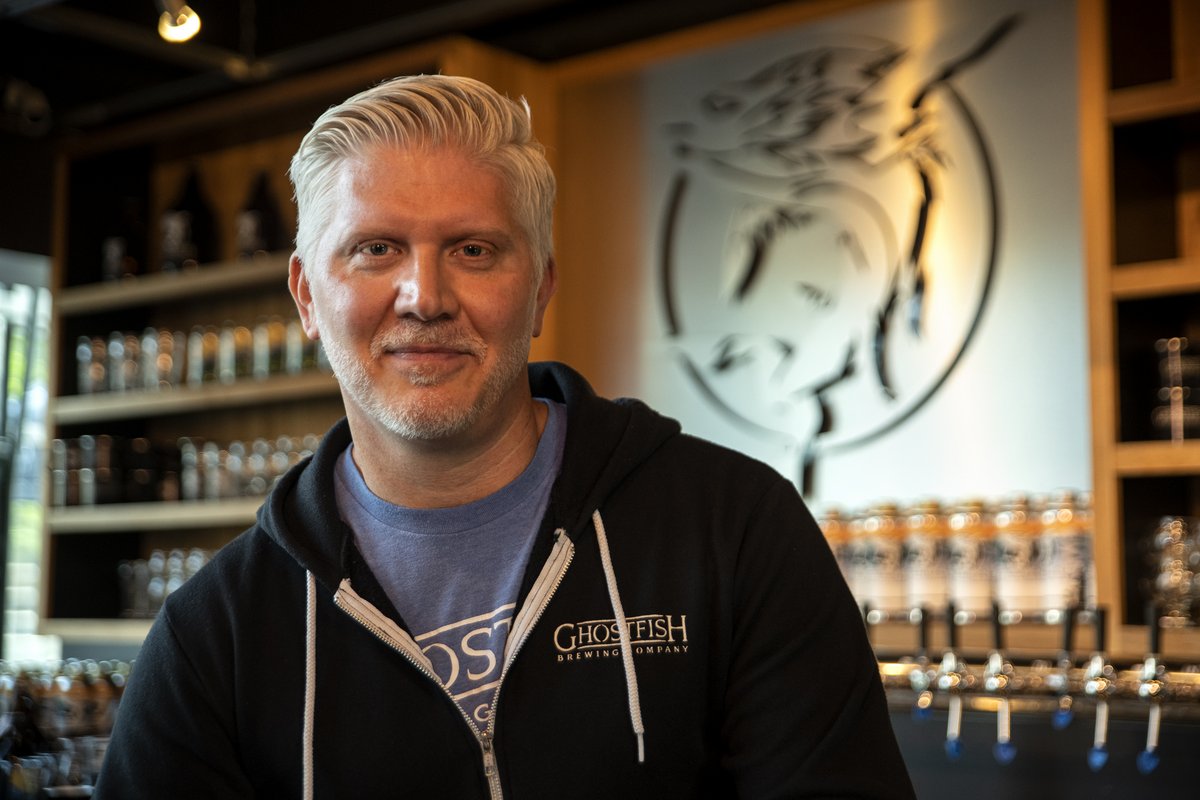
“It feels like we’ve been in a perpetual state of expansion over the past few years,” said Thiel. “We’re working hard to increase our production capacity to meet growing demand while adding additional equipment on our canning line to maintain quality standards. An exciting development for us is the addition of Ghostfish East. This is a new production facility slated for operation near the beginning of the second quarter in 2022 that will significantly increase our overall capacity and allow us to recognize our vision to be the leading supplier of dedicated gluten free beer in North America. We desire to be the preferred gluten free beer choice for retailers and consumers based on taste, quality and value.”
“The advice that I would give to someone interested in getting into the gluten free beer business would be the same that I would give to anyone starting a business. Due your due diligence on the market. Build a solid business plan based on sound data and realistic goals. Plan to need more startup money than you budget for. Last, but not least, hone in on your ‘why’ for starting the business. Ask yourself, ‘why should anyone care about my brewery?’
That’s solid advice. And when it comes to a brewer’s compressed air, Sullair shares some final insights.
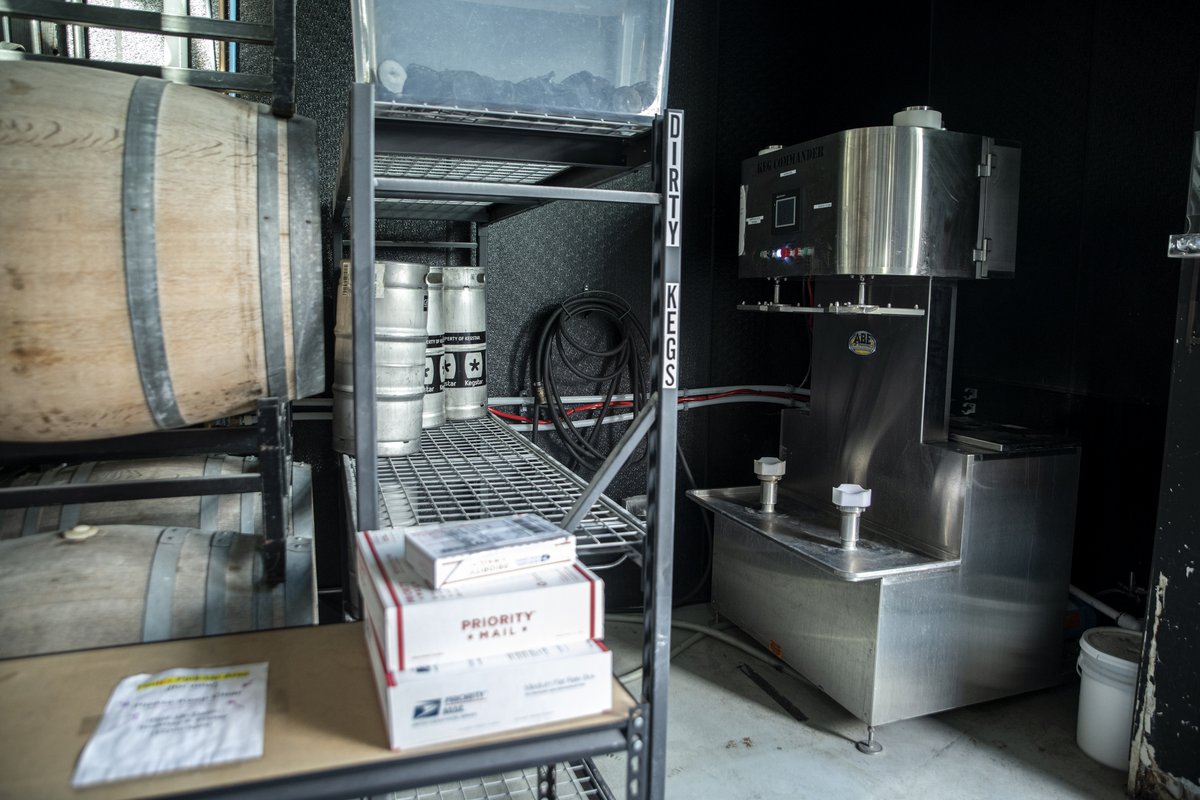
“Sizing the compressor is based on how much clean compressed air is required, while power availability to their location will dictate the voltage requirements,” explained Offord. “All compressed air applications in craft brewing require clean, dry air, making further treatment to the compressed air necessary. Air from the atmosphere, having moisture, water vapor and solid particles, enters into the air compressor intake for compression. The intake filter removes some solid particles but not all. After compression takes place, the resulting discharged compressed air is higher in temperature, thus holding more moisture, and still contains some solid particles. An air dryer is required to remove the moisture from the compressed air by cooling the air. This cooling process causes the water vapor to condensate into a liquid form which can then be removed so it is not introduced to the end application. Various types of air dryers can be used in the air drying process, but refrigerant dryers tend to be most common.
“Similarly, a pre-filter before the air dryer, as well as a post-filter after the dryer, are also necessary to remove the solid particles. Both air dryer and filtration are sized based on the compressed air capacity of the compressor.”

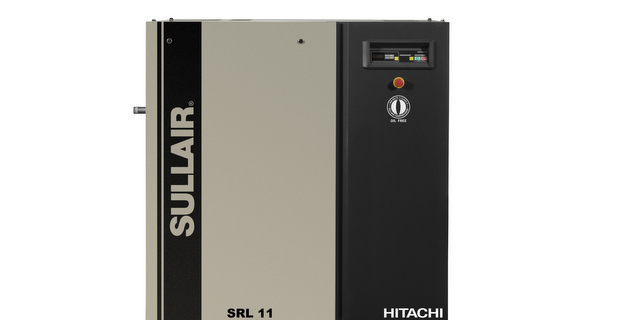
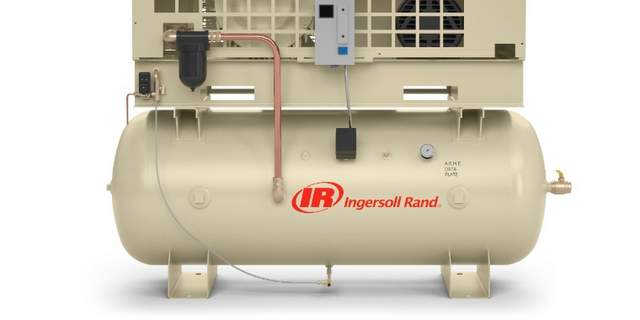

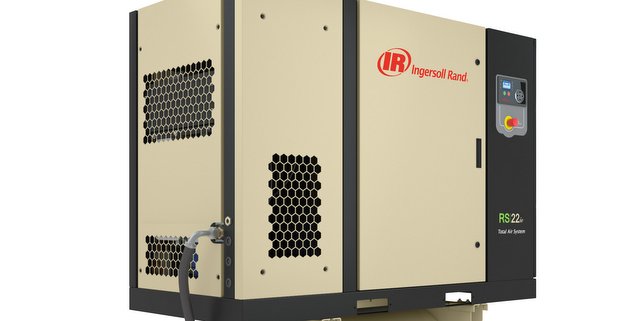
Leave a Reply
You must be logged in to post a comment.